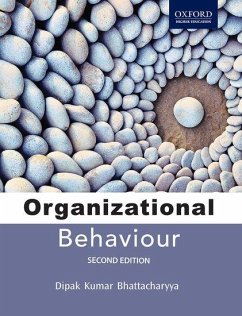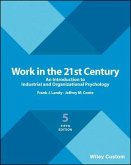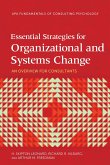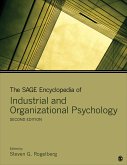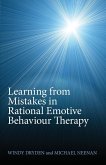Dipak Kumar Bhattacharyya
Organizational Behaviour
Dipak Kumar Bhattacharyya
Organizational Behaviour
- Broschiertes Buch
- Merkliste
- Auf die Merkliste
- Bewerten Bewerten
- Teilen
- Produkt teilen
- Produkterinnerung
- Produkterinnerung
The second edition of Organizational Behaviour serves as a textbook for an introductory course on organizational behaviour.
Andere Kunden interessierten sich auch für
![Work in the 21st Century: An Introduction to Industrial and Organizational Psychology Work in the 21st Century: An Introduction to Industrial and Organizational Psychology]() Frank J. LandyWork in the 21st Century: An Introduction to Industrial and Organizational Psychology76,99 €
Frank J. LandyWork in the 21st Century: An Introduction to Industrial and Organizational Psychology76,99 €![Essential Strategies for Organizational and Systems Change Essential Strategies for Organizational and Systems Change]() H Skipton LeonardEssential Strategies for Organizational and Systems Change51,99 €
H Skipton LeonardEssential Strategies for Organizational and Systems Change51,99 €![The Sage Handbook of Industrial, Work & Organizational Psychology, 3v The Sage Handbook of Industrial, Work & Organizational Psychology, 3v]() The Sage Handbook of Industrial, Work & Organizational Psychology, 3v671,99 €
The Sage Handbook of Industrial, Work & Organizational Psychology, 3v671,99 €![The Sage Encyclopedia of Industrial and Organizational Psychology The Sage Encyclopedia of Industrial and Organizational Psychology]() The Sage Encyclopedia of Industrial and Organizational Psychology840,99 €
The Sage Encyclopedia of Industrial and Organizational Psychology840,99 €![The Cognitive Behaviour Counselling Primer The Cognitive Behaviour Counselling Primer]() Rhena BranchThe Cognitive Behaviour Counselling Primer21,99 €
Rhena BranchThe Cognitive Behaviour Counselling Primer21,99 €![Racial and Cultural Dynamics in Group and Organizational Life Racial and Cultural Dynamics in Group and Organizational Life]() Mary B McRaeRacial and Cultural Dynamics in Group and Organizational Life142,99 €
Mary B McRaeRacial and Cultural Dynamics in Group and Organizational Life142,99 €![Learning from Mistakes in Rational Emotive Behaviour Therapy Learning from Mistakes in Rational Emotive Behaviour Therapy]() Windy DrydenLearning from Mistakes in Rational Emotive Behaviour Therapy40,99 €
Windy DrydenLearning from Mistakes in Rational Emotive Behaviour Therapy40,99 €-
-
-
The second edition of Organizational Behaviour serves as a textbook for an introductory course on organizational behaviour.
Hinweis: Dieser Artikel kann nur an eine deutsche Lieferadresse ausgeliefert werden.
Hinweis: Dieser Artikel kann nur an eine deutsche Lieferadresse ausgeliefert werden.
Produktdetails
- Produktdetails
- Verlag: Hurst & Co.
- 2nd edition
- Seitenzahl: 640
- Erscheinungstermin: 15. Mai 2016
- Englisch
- Abmessung: 241mm x 185mm x 20mm
- Gewicht: 862g
- ISBN-13: 9780199451166
- ISBN-10: 0199451168
- Artikelnr.: 47864978
- Herstellerkennzeichnung
- Libri GmbH
- Europaallee 1
- 36244 Bad Hersfeld
- gpsr@libri.de
- Verlag: Hurst & Co.
- 2nd edition
- Seitenzahl: 640
- Erscheinungstermin: 15. Mai 2016
- Englisch
- Abmessung: 241mm x 185mm x 20mm
- Gewicht: 862g
- ISBN-13: 9780199451166
- ISBN-10: 0199451168
- Artikelnr.: 47864978
- Herstellerkennzeichnung
- Libri GmbH
- Europaallee 1
- 36244 Bad Hersfeld
- gpsr@libri.de
Dipak Kumar Bhattacharyya is presently Professor, Organizational Behaviour, Xavier Institute of Management, Bhubaneswar (XIMB). Earlier, he was the Dean of the Indian Institute of Social Welfare and Business Management (IISWBM), Kolkata, and served as the Director of the Institute of Engineering & Management (IEM), Kolkata, and AIMA-CME, New Delhi. He was also a visiting professor at XLRI Jamshedpur. With more than fifteen years of professional experience and over twenty years of teaching experience, he is actively involved in research, training, and consulting activities. Dr Bhattacharyya has authored several books on HR and management along with over 100 articles and papers published in various journals of national and international repute.
* Preface
* 1: Chapter 1: Introduction to organizational behaviour and management
* Introduction
* Nature of management
* Meaning of management
* Different dimensions of management
* Management functions and processes
* Important characteristics and features of management
* Excellence at Macquarie Bank
* 2: Chapter 2: Evolution of organizational behaviour
* Introduction
* Pre-classical approach
* Classical school of thoughts
* Behavioural theories Neo-classical approach
* Modern approaches
* Contemporary school of management thoughts
* Management by objectives
* The HP way
* 3: Chapter 3: Organizational strategies and policies
* Introduction
* Prescriptive schools
* Descriptive schools
* Strategy across levels
* Tactics and strategy
* Strategy and organizational behaviour
* Aligning strategies to transform people
* Example of strategy and action plan for HRM
* Policy
* Strategic control
* Operational control systems
* Marico Surviving a fiercely competitive industry
* Appendix 3.1: Employee leave policy
* 4: Chapter 4: Organizational structure and systems
* Introduction
* Definitions and principles of organization
* Theories of organization
* Basic principles of organization or organizing
* Human factors in organizing
* Important steps in organizing
* Importance and benefits of organization
* Types of organization
* Organizational structure
* What comes first strategy or structure?
* Developing an organizational structure or design
* Dynamic organization structure and departmentation
* Organizing as part of total management task
* Delegation versus decentralization
* Line and staff relations
* Span of management
* Virtual and networked organizations
* Designing organizations for uncertain environment
* The Chinese dragon and a new organization structure
* 5: Chapter 5: Personality and its influence on organization behaviour
* Introduction
* Personality and organizational behaviour
* Personality theories
* Definition of personality
* Charactierstics of personality
* Determinants of personality
* Personality and individual differences
* Personality types
* Personality opposites
* Jungian types, Myers-Briggs, and the four temperaments
* Measurement of personality traits
* Situation versus personality debate
* Biological approach to personality
* Learning perspectives of personality
* Phenomenological perspectives on personality
* Personality measurement
* Relating personality to behaviour
* Perception and its influence on individual behaviour
* Individual behaviour and performance
* Thinking and the decision-making process
* Impression management
* Dabur India Limited Success story of a century old Indian
conglomerate
* 6: Chapter 6: Attitude and its measurement
* Introduction
* Definition and concepts
* Attitude-behaviour relationship
* Values and attitudes
* Attitudes and organizational behaviour
* Attitude measurement
* Attitude survey
* HRD and attitudinal change
* Accuracy, reliability, and validity scale
* Managing work culture transformation
* 7: Chapter 7: Emotional intelligence and organizational behaviour
* Introduction
* Historical roots of emotional intelligence
* Understanding emotional intelligence
* Nature of emotional intelligence
* Use of emotional intelligence at work
* Use and abuse of emotional intelligence at workplace
* Emotional intelligence, individual behaviour and performance
* Assessment of emotional intelligence and competence
* Management of emotions
* Models of emotional intelligence
* NLP and emotional intelligence
* Emotional labour
* Affective events theory
* Emotional intelligence at the workplace
* 8: Chapter 8: Organizational behaviour and group
* Introduction
* Importance of studying groups
* Definition
* Types of groups
* Theories of group formation
* Stages of group development
* Effectiveness of groups
* Decision making in groups
* Groupthink
* Reasons for joining groups
* Groups and organizational culture
* Model of team development
* Group roles and norms
* Group dynamics
* Group dynamics at Megasoft
* 9: Chapter 9: Conflict management and stress in organizations
* Introduction
* Definition and concept of conflict
* Causes of conflict
* Conflict management
* Conflict models and strategies
* Stress in organizations
* Conflict management process
* Grievance handling
* Principles of natural justice
* Collective bargaining as conflict resolution strategy
* Conflict management at Supreme India
* Appendix 9.1: Sample disciplinary policy
* 10: Chapter 10: Organizational behaviour and job design
* Introduction
* Definition and concepts
* Job design
* Steps in job design
* Job analysis methods
* Use of assessment centres
* Approach for job analysis
* Job description
* Job evaluation
* Job assessment
* Work measurement
* Ergonomics
* Motion economy
* Human engineering
* Value analysis
* Competency-based approach in job design
* Amrita Sagar
* Appendix 10.1: Job analysis data sheet
* Appendix 10.2: Job description and specifications
* Appendix 10.3: Competency sets and the evidences required for the job
of regional director
* 11: Chapter 11: Employee motivation
* Introduction
* Motivation elements
* Definition and concept
* Important objectives of motivation
* Mechanisms of motivation
* Theories of motivation
* Employee counseling
* Designing motivational strategies
* ICBANK Model of employee motivation
* 12: Chapter 12: Leadership
* Introduction
* Definitions and characteristics
* Management and leadership
* Formal and informal leaders
* Significance of leadership
* Leadership qualities
* Organizational leadership and environment
* Functions of leadership
* Leadership and power
* Leadership styles
* Leadership attitudes
* Leadership skill
* Leadership theories
* Widely acclaimed studies on leadership
* Grouping of leadership theories
* Entrepreneurial leadership
* Language of leaders
* A leadership case study MOVEFAST
* 13: Chapter 13: Power and politics in organizations
* Introduction
* Theories of power
* Organizational power and control
* Power and systems of organizational membership
* Sources of power
* Power and empowerment power to the people
* Organizational politics
* The fall of Sona Computers
* 14: Chapter 14: Communication and negotiation in organizations
* Introduction
* Definition and concepts
* Nature of communication
* Effective communication
* Psychological and behavioural influence on communication
* Group communications
* Communication barriers
* Transactional analysis
* Negotiation
* Failed Communication
* 15: Chapter 15: Globalization and organizational behaviour
* Introduction
* Definition and concepts
* Globalization challenges for managing organizational behaviour
* Impact of globalization on organizational behaviour
* Globalization and changing business practices in India
* Six Sigma, globalization and technological change
* International organizational behaviour
* Korean management
* Appendix 15.1: WTO brief
* 16: Chapter 16: Ethics and organizational behaviour
* Introduction
* Definitions and concepts
* Code of ethics and code of conduct
* Test of ethical decision making
* Stakeholders and ethical organizations
* Building ethical culture in organizations
* Perception versus behavioural issues and ethics
* What are values?
* Ethics of production
* Ethics of intellectual property rights, knowledge, and skills
* International business ethics
* Dimensions of business ethics
* Conflicting interest
* Ethics of leadership
* 17: Chapter 17: Learning organizations
* Introduction
* Characteristics of learning organization
* Steps for developing a learning organization
* Implementation strategies for learning organizations
* Model of learning organization
* Learning cycle
* Desired behavioural changes for learning organizations
* Dialogue and the learning organization
* Why learning organizations work
* Learning orientations
* Learning curve
* T-Mobile Intensifying the learning gain
* 18: Chapter 18: Organizational culture
* Introduction
* Definition and concept
* Organizational culture and organizational behavioural practices
* Managing corporate culture changes
* Organizational culture and organizational climate
* Organizational culture from global perspective in the context of
globalization
* Merger and acquisition and impact on corporate culture
* Hofstedes cultural orientation model
* Applications for the culture in the workplace
* Organizational structure
* Managing change in Tata Consultancy Services Ltd
* 19: Chapter 19: Introduction to organizational Change
* Introduction
* Definitions and concepts
* Theories on organizational change
* Needs for organizational change
* Philosophy of organizational change
* Steps to successful change
* Organizational transition
* Differences between organizational change, transformation, and
renewal
* Change triggers
* Key elements for success in organizational change
* Organizational change tips
* Troubleshooting tips for organizational change
* Organizational change through training and development
* Generic change or transition models
* Types of change
* Systems thinking and change
* Change management strategies
* Personal construct psychology and organizational change
* ABC technique and organizational change
* Change equation
* Integrative approach to organizational change
* Role of organizational change consultants
* Common drawbacks in implementing organizational change
* Navigating change: Lessons from HUL
* 20: Chapter 20: Knowledge Management
* Introduction
* Definition and concepts
* Integral components of knowledge management
* Benefits of knowledge management
* Building a knowledge organization
* Knowledge management strategy
* Knowledge-strategy link
* Strategic knowledge management in Indian organizations
* Indian companies and knowledge management
* Knowledge management and resource-based competitive advantage
* Catalysts for knowledge management practices in organizations
* Knowledge management and organizational behaviour
* Reengineering AIMA through knowledge management
* 21: Chapter 21: Organizational behaviour research
* Introduction
* Basic concepts
* Ethical issues in OB research
* Tools and techniques of OB research
* Framing of hypotheses
* Data types and preparation for analysis
* Some uncommon data collection methods for OB research
* Processing and coding of data
* Analysis and interpretation of data
* Meta-analysis
* Qualitative research considerations
* RichOvernight Financial Services
* 22: Chapter 22: Total quality management and Organizational behaviour
* Introduction
* TQM and the operating environment of organizations
* ISO standards and TQM systems
* Teams and teamwork
* Organizational behaviour and TQM
* OB and Six Sigma practices
* Innovative customer service at EMC Corporation
* Index
* 1: Chapter 1: Introduction to organizational behaviour and management
* Introduction
* Nature of management
* Meaning of management
* Different dimensions of management
* Management functions and processes
* Important characteristics and features of management
* Excellence at Macquarie Bank
* 2: Chapter 2: Evolution of organizational behaviour
* Introduction
* Pre-classical approach
* Classical school of thoughts
* Behavioural theories Neo-classical approach
* Modern approaches
* Contemporary school of management thoughts
* Management by objectives
* The HP way
* 3: Chapter 3: Organizational strategies and policies
* Introduction
* Prescriptive schools
* Descriptive schools
* Strategy across levels
* Tactics and strategy
* Strategy and organizational behaviour
* Aligning strategies to transform people
* Example of strategy and action plan for HRM
* Policy
* Strategic control
* Operational control systems
* Marico Surviving a fiercely competitive industry
* Appendix 3.1: Employee leave policy
* 4: Chapter 4: Organizational structure and systems
* Introduction
* Definitions and principles of organization
* Theories of organization
* Basic principles of organization or organizing
* Human factors in organizing
* Important steps in organizing
* Importance and benefits of organization
* Types of organization
* Organizational structure
* What comes first strategy or structure?
* Developing an organizational structure or design
* Dynamic organization structure and departmentation
* Organizing as part of total management task
* Delegation versus decentralization
* Line and staff relations
* Span of management
* Virtual and networked organizations
* Designing organizations for uncertain environment
* The Chinese dragon and a new organization structure
* 5: Chapter 5: Personality and its influence on organization behaviour
* Introduction
* Personality and organizational behaviour
* Personality theories
* Definition of personality
* Charactierstics of personality
* Determinants of personality
* Personality and individual differences
* Personality types
* Personality opposites
* Jungian types, Myers-Briggs, and the four temperaments
* Measurement of personality traits
* Situation versus personality debate
* Biological approach to personality
* Learning perspectives of personality
* Phenomenological perspectives on personality
* Personality measurement
* Relating personality to behaviour
* Perception and its influence on individual behaviour
* Individual behaviour and performance
* Thinking and the decision-making process
* Impression management
* Dabur India Limited Success story of a century old Indian
conglomerate
* 6: Chapter 6: Attitude and its measurement
* Introduction
* Definition and concepts
* Attitude-behaviour relationship
* Values and attitudes
* Attitudes and organizational behaviour
* Attitude measurement
* Attitude survey
* HRD and attitudinal change
* Accuracy, reliability, and validity scale
* Managing work culture transformation
* 7: Chapter 7: Emotional intelligence and organizational behaviour
* Introduction
* Historical roots of emotional intelligence
* Understanding emotional intelligence
* Nature of emotional intelligence
* Use of emotional intelligence at work
* Use and abuse of emotional intelligence at workplace
* Emotional intelligence, individual behaviour and performance
* Assessment of emotional intelligence and competence
* Management of emotions
* Models of emotional intelligence
* NLP and emotional intelligence
* Emotional labour
* Affective events theory
* Emotional intelligence at the workplace
* 8: Chapter 8: Organizational behaviour and group
* Introduction
* Importance of studying groups
* Definition
* Types of groups
* Theories of group formation
* Stages of group development
* Effectiveness of groups
* Decision making in groups
* Groupthink
* Reasons for joining groups
* Groups and organizational culture
* Model of team development
* Group roles and norms
* Group dynamics
* Group dynamics at Megasoft
* 9: Chapter 9: Conflict management and stress in organizations
* Introduction
* Definition and concept of conflict
* Causes of conflict
* Conflict management
* Conflict models and strategies
* Stress in organizations
* Conflict management process
* Grievance handling
* Principles of natural justice
* Collective bargaining as conflict resolution strategy
* Conflict management at Supreme India
* Appendix 9.1: Sample disciplinary policy
* 10: Chapter 10: Organizational behaviour and job design
* Introduction
* Definition and concepts
* Job design
* Steps in job design
* Job analysis methods
* Use of assessment centres
* Approach for job analysis
* Job description
* Job evaluation
* Job assessment
* Work measurement
* Ergonomics
* Motion economy
* Human engineering
* Value analysis
* Competency-based approach in job design
* Amrita Sagar
* Appendix 10.1: Job analysis data sheet
* Appendix 10.2: Job description and specifications
* Appendix 10.3: Competency sets and the evidences required for the job
of regional director
* 11: Chapter 11: Employee motivation
* Introduction
* Motivation elements
* Definition and concept
* Important objectives of motivation
* Mechanisms of motivation
* Theories of motivation
* Employee counseling
* Designing motivational strategies
* ICBANK Model of employee motivation
* 12: Chapter 12: Leadership
* Introduction
* Definitions and characteristics
* Management and leadership
* Formal and informal leaders
* Significance of leadership
* Leadership qualities
* Organizational leadership and environment
* Functions of leadership
* Leadership and power
* Leadership styles
* Leadership attitudes
* Leadership skill
* Leadership theories
* Widely acclaimed studies on leadership
* Grouping of leadership theories
* Entrepreneurial leadership
* Language of leaders
* A leadership case study MOVEFAST
* 13: Chapter 13: Power and politics in organizations
* Introduction
* Theories of power
* Organizational power and control
* Power and systems of organizational membership
* Sources of power
* Power and empowerment power to the people
* Organizational politics
* The fall of Sona Computers
* 14: Chapter 14: Communication and negotiation in organizations
* Introduction
* Definition and concepts
* Nature of communication
* Effective communication
* Psychological and behavioural influence on communication
* Group communications
* Communication barriers
* Transactional analysis
* Negotiation
* Failed Communication
* 15: Chapter 15: Globalization and organizational behaviour
* Introduction
* Definition and concepts
* Globalization challenges for managing organizational behaviour
* Impact of globalization on organizational behaviour
* Globalization and changing business practices in India
* Six Sigma, globalization and technological change
* International organizational behaviour
* Korean management
* Appendix 15.1: WTO brief
* 16: Chapter 16: Ethics and organizational behaviour
* Introduction
* Definitions and concepts
* Code of ethics and code of conduct
* Test of ethical decision making
* Stakeholders and ethical organizations
* Building ethical culture in organizations
* Perception versus behavioural issues and ethics
* What are values?
* Ethics of production
* Ethics of intellectual property rights, knowledge, and skills
* International business ethics
* Dimensions of business ethics
* Conflicting interest
* Ethics of leadership
* 17: Chapter 17: Learning organizations
* Introduction
* Characteristics of learning organization
* Steps for developing a learning organization
* Implementation strategies for learning organizations
* Model of learning organization
* Learning cycle
* Desired behavioural changes for learning organizations
* Dialogue and the learning organization
* Why learning organizations work
* Learning orientations
* Learning curve
* T-Mobile Intensifying the learning gain
* 18: Chapter 18: Organizational culture
* Introduction
* Definition and concept
* Organizational culture and organizational behavioural practices
* Managing corporate culture changes
* Organizational culture and organizational climate
* Organizational culture from global perspective in the context of
globalization
* Merger and acquisition and impact on corporate culture
* Hofstedes cultural orientation model
* Applications for the culture in the workplace
* Organizational structure
* Managing change in Tata Consultancy Services Ltd
* 19: Chapter 19: Introduction to organizational Change
* Introduction
* Definitions and concepts
* Theories on organizational change
* Needs for organizational change
* Philosophy of organizational change
* Steps to successful change
* Organizational transition
* Differences between organizational change, transformation, and
renewal
* Change triggers
* Key elements for success in organizational change
* Organizational change tips
* Troubleshooting tips for organizational change
* Organizational change through training and development
* Generic change or transition models
* Types of change
* Systems thinking and change
* Change management strategies
* Personal construct psychology and organizational change
* ABC technique and organizational change
* Change equation
* Integrative approach to organizational change
* Role of organizational change consultants
* Common drawbacks in implementing organizational change
* Navigating change: Lessons from HUL
* 20: Chapter 20: Knowledge Management
* Introduction
* Definition and concepts
* Integral components of knowledge management
* Benefits of knowledge management
* Building a knowledge organization
* Knowledge management strategy
* Knowledge-strategy link
* Strategic knowledge management in Indian organizations
* Indian companies and knowledge management
* Knowledge management and resource-based competitive advantage
* Catalysts for knowledge management practices in organizations
* Knowledge management and organizational behaviour
* Reengineering AIMA through knowledge management
* 21: Chapter 21: Organizational behaviour research
* Introduction
* Basic concepts
* Ethical issues in OB research
* Tools and techniques of OB research
* Framing of hypotheses
* Data types and preparation for analysis
* Some uncommon data collection methods for OB research
* Processing and coding of data
* Analysis and interpretation of data
* Meta-analysis
* Qualitative research considerations
* RichOvernight Financial Services
* 22: Chapter 22: Total quality management and Organizational behaviour
* Introduction
* TQM and the operating environment of organizations
* ISO standards and TQM systems
* Teams and teamwork
* Organizational behaviour and TQM
* OB and Six Sigma practices
* Innovative customer service at EMC Corporation
* Index
* Preface
* 1: Chapter 1: Introduction to organizational behaviour and management
* Introduction
* Nature of management
* Meaning of management
* Different dimensions of management
* Management functions and processes
* Important characteristics and features of management
* Excellence at Macquarie Bank
* 2: Chapter 2: Evolution of organizational behaviour
* Introduction
* Pre-classical approach
* Classical school of thoughts
* Behavioural theories Neo-classical approach
* Modern approaches
* Contemporary school of management thoughts
* Management by objectives
* The HP way
* 3: Chapter 3: Organizational strategies and policies
* Introduction
* Prescriptive schools
* Descriptive schools
* Strategy across levels
* Tactics and strategy
* Strategy and organizational behaviour
* Aligning strategies to transform people
* Example of strategy and action plan for HRM
* Policy
* Strategic control
* Operational control systems
* Marico Surviving a fiercely competitive industry
* Appendix 3.1: Employee leave policy
* 4: Chapter 4: Organizational structure and systems
* Introduction
* Definitions and principles of organization
* Theories of organization
* Basic principles of organization or organizing
* Human factors in organizing
* Important steps in organizing
* Importance and benefits of organization
* Types of organization
* Organizational structure
* What comes first strategy or structure?
* Developing an organizational structure or design
* Dynamic organization structure and departmentation
* Organizing as part of total management task
* Delegation versus decentralization
* Line and staff relations
* Span of management
* Virtual and networked organizations
* Designing organizations for uncertain environment
* The Chinese dragon and a new organization structure
* 5: Chapter 5: Personality and its influence on organization behaviour
* Introduction
* Personality and organizational behaviour
* Personality theories
* Definition of personality
* Charactierstics of personality
* Determinants of personality
* Personality and individual differences
* Personality types
* Personality opposites
* Jungian types, Myers-Briggs, and the four temperaments
* Measurement of personality traits
* Situation versus personality debate
* Biological approach to personality
* Learning perspectives of personality
* Phenomenological perspectives on personality
* Personality measurement
* Relating personality to behaviour
* Perception and its influence on individual behaviour
* Individual behaviour and performance
* Thinking and the decision-making process
* Impression management
* Dabur India Limited Success story of a century old Indian
conglomerate
* 6: Chapter 6: Attitude and its measurement
* Introduction
* Definition and concepts
* Attitude-behaviour relationship
* Values and attitudes
* Attitudes and organizational behaviour
* Attitude measurement
* Attitude survey
* HRD and attitudinal change
* Accuracy, reliability, and validity scale
* Managing work culture transformation
* 7: Chapter 7: Emotional intelligence and organizational behaviour
* Introduction
* Historical roots of emotional intelligence
* Understanding emotional intelligence
* Nature of emotional intelligence
* Use of emotional intelligence at work
* Use and abuse of emotional intelligence at workplace
* Emotional intelligence, individual behaviour and performance
* Assessment of emotional intelligence and competence
* Management of emotions
* Models of emotional intelligence
* NLP and emotional intelligence
* Emotional labour
* Affective events theory
* Emotional intelligence at the workplace
* 8: Chapter 8: Organizational behaviour and group
* Introduction
* Importance of studying groups
* Definition
* Types of groups
* Theories of group formation
* Stages of group development
* Effectiveness of groups
* Decision making in groups
* Groupthink
* Reasons for joining groups
* Groups and organizational culture
* Model of team development
* Group roles and norms
* Group dynamics
* Group dynamics at Megasoft
* 9: Chapter 9: Conflict management and stress in organizations
* Introduction
* Definition and concept of conflict
* Causes of conflict
* Conflict management
* Conflict models and strategies
* Stress in organizations
* Conflict management process
* Grievance handling
* Principles of natural justice
* Collective bargaining as conflict resolution strategy
* Conflict management at Supreme India
* Appendix 9.1: Sample disciplinary policy
* 10: Chapter 10: Organizational behaviour and job design
* Introduction
* Definition and concepts
* Job design
* Steps in job design
* Job analysis methods
* Use of assessment centres
* Approach for job analysis
* Job description
* Job evaluation
* Job assessment
* Work measurement
* Ergonomics
* Motion economy
* Human engineering
* Value analysis
* Competency-based approach in job design
* Amrita Sagar
* Appendix 10.1: Job analysis data sheet
* Appendix 10.2: Job description and specifications
* Appendix 10.3: Competency sets and the evidences required for the job
of regional director
* 11: Chapter 11: Employee motivation
* Introduction
* Motivation elements
* Definition and concept
* Important objectives of motivation
* Mechanisms of motivation
* Theories of motivation
* Employee counseling
* Designing motivational strategies
* ICBANK Model of employee motivation
* 12: Chapter 12: Leadership
* Introduction
* Definitions and characteristics
* Management and leadership
* Formal and informal leaders
* Significance of leadership
* Leadership qualities
* Organizational leadership and environment
* Functions of leadership
* Leadership and power
* Leadership styles
* Leadership attitudes
* Leadership skill
* Leadership theories
* Widely acclaimed studies on leadership
* Grouping of leadership theories
* Entrepreneurial leadership
* Language of leaders
* A leadership case study MOVEFAST
* 13: Chapter 13: Power and politics in organizations
* Introduction
* Theories of power
* Organizational power and control
* Power and systems of organizational membership
* Sources of power
* Power and empowerment power to the people
* Organizational politics
* The fall of Sona Computers
* 14: Chapter 14: Communication and negotiation in organizations
* Introduction
* Definition and concepts
* Nature of communication
* Effective communication
* Psychological and behavioural influence on communication
* Group communications
* Communication barriers
* Transactional analysis
* Negotiation
* Failed Communication
* 15: Chapter 15: Globalization and organizational behaviour
* Introduction
* Definition and concepts
* Globalization challenges for managing organizational behaviour
* Impact of globalization on organizational behaviour
* Globalization and changing business practices in India
* Six Sigma, globalization and technological change
* International organizational behaviour
* Korean management
* Appendix 15.1: WTO brief
* 16: Chapter 16: Ethics and organizational behaviour
* Introduction
* Definitions and concepts
* Code of ethics and code of conduct
* Test of ethical decision making
* Stakeholders and ethical organizations
* Building ethical culture in organizations
* Perception versus behavioural issues and ethics
* What are values?
* Ethics of production
* Ethics of intellectual property rights, knowledge, and skills
* International business ethics
* Dimensions of business ethics
* Conflicting interest
* Ethics of leadership
* 17: Chapter 17: Learning organizations
* Introduction
* Characteristics of learning organization
* Steps for developing a learning organization
* Implementation strategies for learning organizations
* Model of learning organization
* Learning cycle
* Desired behavioural changes for learning organizations
* Dialogue and the learning organization
* Why learning organizations work
* Learning orientations
* Learning curve
* T-Mobile Intensifying the learning gain
* 18: Chapter 18: Organizational culture
* Introduction
* Definition and concept
* Organizational culture and organizational behavioural practices
* Managing corporate culture changes
* Organizational culture and organizational climate
* Organizational culture from global perspective in the context of
globalization
* Merger and acquisition and impact on corporate culture
* Hofstedes cultural orientation model
* Applications for the culture in the workplace
* Organizational structure
* Managing change in Tata Consultancy Services Ltd
* 19: Chapter 19: Introduction to organizational Change
* Introduction
* Definitions and concepts
* Theories on organizational change
* Needs for organizational change
* Philosophy of organizational change
* Steps to successful change
* Organizational transition
* Differences between organizational change, transformation, and
renewal
* Change triggers
* Key elements for success in organizational change
* Organizational change tips
* Troubleshooting tips for organizational change
* Organizational change through training and development
* Generic change or transition models
* Types of change
* Systems thinking and change
* Change management strategies
* Personal construct psychology and organizational change
* ABC technique and organizational change
* Change equation
* Integrative approach to organizational change
* Role of organizational change consultants
* Common drawbacks in implementing organizational change
* Navigating change: Lessons from HUL
* 20: Chapter 20: Knowledge Management
* Introduction
* Definition and concepts
* Integral components of knowledge management
* Benefits of knowledge management
* Building a knowledge organization
* Knowledge management strategy
* Knowledge-strategy link
* Strategic knowledge management in Indian organizations
* Indian companies and knowledge management
* Knowledge management and resource-based competitive advantage
* Catalysts for knowledge management practices in organizations
* Knowledge management and organizational behaviour
* Reengineering AIMA through knowledge management
* 21: Chapter 21: Organizational behaviour research
* Introduction
* Basic concepts
* Ethical issues in OB research
* Tools and techniques of OB research
* Framing of hypotheses
* Data types and preparation for analysis
* Some uncommon data collection methods for OB research
* Processing and coding of data
* Analysis and interpretation of data
* Meta-analysis
* Qualitative research considerations
* RichOvernight Financial Services
* 22: Chapter 22: Total quality management and Organizational behaviour
* Introduction
* TQM and the operating environment of organizations
* ISO standards and TQM systems
* Teams and teamwork
* Organizational behaviour and TQM
* OB and Six Sigma practices
* Innovative customer service at EMC Corporation
* Index
* 1: Chapter 1: Introduction to organizational behaviour and management
* Introduction
* Nature of management
* Meaning of management
* Different dimensions of management
* Management functions and processes
* Important characteristics and features of management
* Excellence at Macquarie Bank
* 2: Chapter 2: Evolution of organizational behaviour
* Introduction
* Pre-classical approach
* Classical school of thoughts
* Behavioural theories Neo-classical approach
* Modern approaches
* Contemporary school of management thoughts
* Management by objectives
* The HP way
* 3: Chapter 3: Organizational strategies and policies
* Introduction
* Prescriptive schools
* Descriptive schools
* Strategy across levels
* Tactics and strategy
* Strategy and organizational behaviour
* Aligning strategies to transform people
* Example of strategy and action plan for HRM
* Policy
* Strategic control
* Operational control systems
* Marico Surviving a fiercely competitive industry
* Appendix 3.1: Employee leave policy
* 4: Chapter 4: Organizational structure and systems
* Introduction
* Definitions and principles of organization
* Theories of organization
* Basic principles of organization or organizing
* Human factors in organizing
* Important steps in organizing
* Importance and benefits of organization
* Types of organization
* Organizational structure
* What comes first strategy or structure?
* Developing an organizational structure or design
* Dynamic organization structure and departmentation
* Organizing as part of total management task
* Delegation versus decentralization
* Line and staff relations
* Span of management
* Virtual and networked organizations
* Designing organizations for uncertain environment
* The Chinese dragon and a new organization structure
* 5: Chapter 5: Personality and its influence on organization behaviour
* Introduction
* Personality and organizational behaviour
* Personality theories
* Definition of personality
* Charactierstics of personality
* Determinants of personality
* Personality and individual differences
* Personality types
* Personality opposites
* Jungian types, Myers-Briggs, and the four temperaments
* Measurement of personality traits
* Situation versus personality debate
* Biological approach to personality
* Learning perspectives of personality
* Phenomenological perspectives on personality
* Personality measurement
* Relating personality to behaviour
* Perception and its influence on individual behaviour
* Individual behaviour and performance
* Thinking and the decision-making process
* Impression management
* Dabur India Limited Success story of a century old Indian
conglomerate
* 6: Chapter 6: Attitude and its measurement
* Introduction
* Definition and concepts
* Attitude-behaviour relationship
* Values and attitudes
* Attitudes and organizational behaviour
* Attitude measurement
* Attitude survey
* HRD and attitudinal change
* Accuracy, reliability, and validity scale
* Managing work culture transformation
* 7: Chapter 7: Emotional intelligence and organizational behaviour
* Introduction
* Historical roots of emotional intelligence
* Understanding emotional intelligence
* Nature of emotional intelligence
* Use of emotional intelligence at work
* Use and abuse of emotional intelligence at workplace
* Emotional intelligence, individual behaviour and performance
* Assessment of emotional intelligence and competence
* Management of emotions
* Models of emotional intelligence
* NLP and emotional intelligence
* Emotional labour
* Affective events theory
* Emotional intelligence at the workplace
* 8: Chapter 8: Organizational behaviour and group
* Introduction
* Importance of studying groups
* Definition
* Types of groups
* Theories of group formation
* Stages of group development
* Effectiveness of groups
* Decision making in groups
* Groupthink
* Reasons for joining groups
* Groups and organizational culture
* Model of team development
* Group roles and norms
* Group dynamics
* Group dynamics at Megasoft
* 9: Chapter 9: Conflict management and stress in organizations
* Introduction
* Definition and concept of conflict
* Causes of conflict
* Conflict management
* Conflict models and strategies
* Stress in organizations
* Conflict management process
* Grievance handling
* Principles of natural justice
* Collective bargaining as conflict resolution strategy
* Conflict management at Supreme India
* Appendix 9.1: Sample disciplinary policy
* 10: Chapter 10: Organizational behaviour and job design
* Introduction
* Definition and concepts
* Job design
* Steps in job design
* Job analysis methods
* Use of assessment centres
* Approach for job analysis
* Job description
* Job evaluation
* Job assessment
* Work measurement
* Ergonomics
* Motion economy
* Human engineering
* Value analysis
* Competency-based approach in job design
* Amrita Sagar
* Appendix 10.1: Job analysis data sheet
* Appendix 10.2: Job description and specifications
* Appendix 10.3: Competency sets and the evidences required for the job
of regional director
* 11: Chapter 11: Employee motivation
* Introduction
* Motivation elements
* Definition and concept
* Important objectives of motivation
* Mechanisms of motivation
* Theories of motivation
* Employee counseling
* Designing motivational strategies
* ICBANK Model of employee motivation
* 12: Chapter 12: Leadership
* Introduction
* Definitions and characteristics
* Management and leadership
* Formal and informal leaders
* Significance of leadership
* Leadership qualities
* Organizational leadership and environment
* Functions of leadership
* Leadership and power
* Leadership styles
* Leadership attitudes
* Leadership skill
* Leadership theories
* Widely acclaimed studies on leadership
* Grouping of leadership theories
* Entrepreneurial leadership
* Language of leaders
* A leadership case study MOVEFAST
* 13: Chapter 13: Power and politics in organizations
* Introduction
* Theories of power
* Organizational power and control
* Power and systems of organizational membership
* Sources of power
* Power and empowerment power to the people
* Organizational politics
* The fall of Sona Computers
* 14: Chapter 14: Communication and negotiation in organizations
* Introduction
* Definition and concepts
* Nature of communication
* Effective communication
* Psychological and behavioural influence on communication
* Group communications
* Communication barriers
* Transactional analysis
* Negotiation
* Failed Communication
* 15: Chapter 15: Globalization and organizational behaviour
* Introduction
* Definition and concepts
* Globalization challenges for managing organizational behaviour
* Impact of globalization on organizational behaviour
* Globalization and changing business practices in India
* Six Sigma, globalization and technological change
* International organizational behaviour
* Korean management
* Appendix 15.1: WTO brief
* 16: Chapter 16: Ethics and organizational behaviour
* Introduction
* Definitions and concepts
* Code of ethics and code of conduct
* Test of ethical decision making
* Stakeholders and ethical organizations
* Building ethical culture in organizations
* Perception versus behavioural issues and ethics
* What are values?
* Ethics of production
* Ethics of intellectual property rights, knowledge, and skills
* International business ethics
* Dimensions of business ethics
* Conflicting interest
* Ethics of leadership
* 17: Chapter 17: Learning organizations
* Introduction
* Characteristics of learning organization
* Steps for developing a learning organization
* Implementation strategies for learning organizations
* Model of learning organization
* Learning cycle
* Desired behavioural changes for learning organizations
* Dialogue and the learning organization
* Why learning organizations work
* Learning orientations
* Learning curve
* T-Mobile Intensifying the learning gain
* 18: Chapter 18: Organizational culture
* Introduction
* Definition and concept
* Organizational culture and organizational behavioural practices
* Managing corporate culture changes
* Organizational culture and organizational climate
* Organizational culture from global perspective in the context of
globalization
* Merger and acquisition and impact on corporate culture
* Hofstedes cultural orientation model
* Applications for the culture in the workplace
* Organizational structure
* Managing change in Tata Consultancy Services Ltd
* 19: Chapter 19: Introduction to organizational Change
* Introduction
* Definitions and concepts
* Theories on organizational change
* Needs for organizational change
* Philosophy of organizational change
* Steps to successful change
* Organizational transition
* Differences between organizational change, transformation, and
renewal
* Change triggers
* Key elements for success in organizational change
* Organizational change tips
* Troubleshooting tips for organizational change
* Organizational change through training and development
* Generic change or transition models
* Types of change
* Systems thinking and change
* Change management strategies
* Personal construct psychology and organizational change
* ABC technique and organizational change
* Change equation
* Integrative approach to organizational change
* Role of organizational change consultants
* Common drawbacks in implementing organizational change
* Navigating change: Lessons from HUL
* 20: Chapter 20: Knowledge Management
* Introduction
* Definition and concepts
* Integral components of knowledge management
* Benefits of knowledge management
* Building a knowledge organization
* Knowledge management strategy
* Knowledge-strategy link
* Strategic knowledge management in Indian organizations
* Indian companies and knowledge management
* Knowledge management and resource-based competitive advantage
* Catalysts for knowledge management practices in organizations
* Knowledge management and organizational behaviour
* Reengineering AIMA through knowledge management
* 21: Chapter 21: Organizational behaviour research
* Introduction
* Basic concepts
* Ethical issues in OB research
* Tools and techniques of OB research
* Framing of hypotheses
* Data types and preparation for analysis
* Some uncommon data collection methods for OB research
* Processing and coding of data
* Analysis and interpretation of data
* Meta-analysis
* Qualitative research considerations
* RichOvernight Financial Services
* 22: Chapter 22: Total quality management and Organizational behaviour
* Introduction
* TQM and the operating environment of organizations
* ISO standards and TQM systems
* Teams and teamwork
* Organizational behaviour and TQM
* OB and Six Sigma practices
* Innovative customer service at EMC Corporation
* Index

